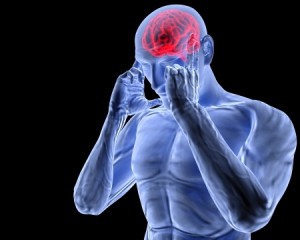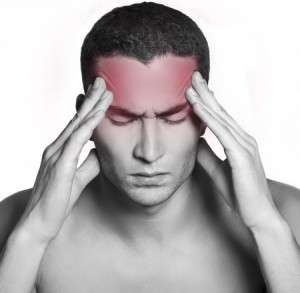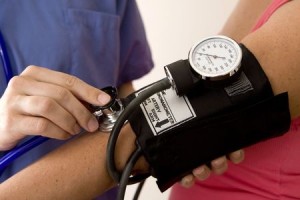The Neck and Headache Connection
The Neck and Headache Connection
Clear Lake Chiropractor Comments: Patients with headaches also commonly complain of neck pain. This relationship is the rule, not the exception and therefore, treatment for headaches must include treatment of the neck to achieve optimum results. The term, “cervicogenic headaches” has been an accepted term because of the intimate connection between the neck and head for many years. There are many anatomical reasons why neck problems result in headaches. Some of these include:
- The first 3 nerves exiting the spine in the upper neck go directly into the head. They penetrate the muscles at the top of the neck near the attachments to the skull and therefore, any excess pressure on these nerves by the muscles or spinal joints will result in irritation and subsequent pain.
- The origin or nucleus of the 5th cranial nerve called the Trigeminal, innervates the sensation to the face and is located in the upper cervical region near the origin of the 2nd cervical spinal nerve, which innervates sensation to the back of the head up to the top. Therefore, problems located in the upper neck will often result in pain radiating up from the base of the skull/upper neck over the top of the skull to the eyes and /or face.
- The 11th cranial nerve that innervates the upper shoulders and muscles in the front of the neck arises from the top 5 to 7 spinal cord levels in the neck. Injury anywhere in the neck can result in spasm and pain in these large muscle groups.
- Other interconnections between the 2nd cervical nerve and trigeminal/5th cranial nerve include communication with the 7th cranial / facial nerve, the 9th cranial / glossopharyngeal nerve, and the 10th cranial / vagus nerve. These connections can affect facial muscle strength/movements, taste, tongue and throat movements, and stomach complaints such as nausea from these three cranial nerve interconnections, respectively.

Headache flickr photo by Peter Hellberg shared under a Creative Commons (BY-SA) license
When patients seek treatment for their headaches, a thorough examination of the neck, upper back, and cranial nerves is routinely performed for the above reasons. It is common to find upper cervical movement and vertebral alignment problems present in patients complaining of headaches. Tender points located between the shoulder blades, along the upper shoulders, on the sides of the neck and particularly, at the base of the skull are commonly found. Pain often radiates from the tender point over the top of the skull when pressure is applied in the upper neck/base of the skull area. Tenderness on the sides of the head, in the temples, over the eyes, and near the jaw joint are also common. Traction or pulling the head to stretch the neck is often quite pain relieving and this is often performed as part of the chiropractic visit and can also be applied at home with the use of a home cervical traction unit. Chiropractic adjustments applied to the fixated or misaligned vertebra in the upper neck often brings very satisfying relief to the headache sufferer. Exercises that promote movement in the neck, as well as strengthening exercises are also helpful in both reducing headache pain and in preventing occurrences, especially with stress or tension headaches.
Dr. Ward Beecher practices at Beecher Chiropractic Clinic at 1001 Pineloch, Ste 700 Houston, TX 77062. You can schedule an appointment with a Clear Lake chiropractor by calling (281) 286-1300. If you have any questions regarding this blog, please comment below!
Headaches and Posture
To download a copy of this week’s newsletter, please click here.
Houston Area Chiropractor Comments: Have you ever glanced at your reflection in a storefront window or mirror as you walked by and noticed your posture? Scary, isn’t it? We all know that we should stand up straight but we soon forget when we get busy and stop thinking about it.
Poor posture is often due to years of standing slouched and this bad “habit” usually starts at a young age. Just look around when you’re in an airport or shopping mall and notice the many people  have poor posture. In fact, people’s posture may reflect their attitude – if they’re happy, sad or depressed. Poor posture may be related to self-consciousness, especially during adolescence. It is also genetic as we frequently see a “trait” throughout family members with similar postural tendencies.
have poor posture. In fact, people’s posture may reflect their attitude – if they’re happy, sad or depressed. Poor posture may be related to self-consciousness, especially during adolescence. It is also genetic as we frequently see a “trait” throughout family members with similar postural tendencies.
The most common postural fault associated with headaches is the forward based head and shoulders. From the side, it appears that the head is significantly forward relative to the shoulders, the upper back is rounded forward and the shoulders are rolled forwards and rotated inward. One exercise that helps reduce this postural bad habit is tucking in the chin and pretending a book is balancing on top of the head. The objective is to not allow the book to slide forward off your head and land on your toes!
It takes approximately 3 months of CONSTANT self-reminding before the new “good habit” posture becomes automatic, so be patient. Soon you’ll “catch yourself doing it right” without thinking about it.
Frequently, posture is faulty lower down the “kinetic chain.” The first link of the chain is the feet and the last link is the head. Since we stand on two feet, any change in that first link or the feet, can alter the rest of the chain, especially areas furthest away – the head, resulting in headaches. For example, if one leg is short, the pelvis drops, the spine shifts (scoliosis), the shoulder drops and the head shifts trying to keep the eyes level. A short leg usually needs to be managed with a heel lift, an arch support or combination of both to properly treat the headache patient.
Most health care providers EXCEPT Chiropractic Physicians typically ignore these issues. Chiropractic Doctors are specifically trained to analyze posture and correct it. You can depend on our clinic for up-to-date treatment approaches such as these.
Dr. Ward Beecher practices at Beecher Chiropractic Clinic at 1001 Pineloch, Ste 700 Houston, TX 77062. You can schedule an appointment at BeecherChiropractic.com or by calling (281) 286-1300. If you have any questions regarding this blog, please comment below!
Headaches and Different Management Options
To download a copy of this newsletter, please click here.
Houston Chiropractor Comments: Headaches are one of the more common conditions that enter the offices of primary care physicians, including chiropractors. The standard medical treatment revolves around the use of medications and/or injections. The standard chiropractic treatment approach includes manual therapies that may include spinal manipulation or adjustments, manual or mechanical cervical traction, mobilization techniques, trigger point therapy, physical agents or modalities such as electrical stimulation, ultrasound, etc., and nutritional counseling. While both approaches have their pros and cons, there are far less side effects associated with the chiropractic treatment option.
Headaches can generally be classified as primary or secondary. Primary Headaches include Migraine, Tension, and Cluster. Secondary headaches occur because another condition or injury is present such as after a car accident or slip and fall injury, due an infection, a sinus, jaw, and/or dental condition, a vascular injury such as stroke, a medication side effect, psychiatric disorder and others.
Treatment for patients with headaches is dependent on the cause. Choosing a type of health care service for the treatment of headache can be a difficult choice. When considering the use of complementary and alternative medical approaches available to patients with chronic tension-type headaches, a recent report revealed that 40% of 110 patients surveyed utilized some form of an alternative/complementary medical approach. The most frequently utilized was chiropractic (21.9%), followed by acupuncture (17.8%), and massage therapy (17.8%).
If you find yourself frequently utilizing over-the-counter medications such as an anti-inflammatory drugs (ibuprofen: Advil, Nuprin; Naprosyn such as Aleve) or Tylenol, it is probable that the chiropractic management approach will benefit your headache condition.
Frequently, in patients with headaches, the vertebrae in the upper neck lose their normal range of motion and the muscles in that region that attach to the base of the skull become overly tight and squeeze or compress the nerves that feed into the head. This results in radiating pain over the top or around the head, sometimes into the eyes. Chiropractic care can make it easier for you to move your head and neck forwards, back, rotate or twist, and side bend. This, in turn reduces the muscle tension and nerve pinching, which reduces headache pain.
Dr. Ward Beecher practices at Beecher Chiropractic Clinic at 1001 Pineloch, Ste 700 Houston, TX 77062. You can schedule an appointment at BeecherChiropractic.com or by calling (281) 286-1300. If you have any questions regarding this blog, please comment below!
Different Types of Headaches and Chiropractic Care
To download a copy of this week’s newsletter, please click here.
Clear Lake City Chiropractor Comments: Adults may experience many different kinds of headaches. A primary headache is a headache that is not a part of another disease process. Secondary headaches can come from a poor eyeglass prescription, diabetes, the flu, or even a brain tumor. The most common primary headaches are tension-type, migraine, and cervicogenic (from the neck).
Tension type headaches feel like a tight band around your head. Stress seems to aggravate them and women tend to get this type of headache more frequently. Females are also more affected by

migraine headaches.
There are two types of migraine: classical and common. The classical migraine headache may start with nausea or sickness in the stomach and proceed to an intense throbbing pain on one side of the head. The common migraine lacks this nausea and is more common than the classical type.
In cervicogenic headache, neck function is prominently disturbed. In addition to neck pain, there are usually tight neck and shoulder muscles, and a limited range of motion.
Recent research has shown that the three above described headaches can also overlap with one another. In chiropractic, we look to the spine as an often-overlooked factor in headache treatment. By objectively analyzing spine function, the doctor will identify the joints that are restricted in their range of motion or show abnormal posture and alignment. Many patients on x-ray, or through external postural analysis from the side, can show forward head posture. This is where the neck seems to arise from the front of the chest rather than back over your shoulders. The head is very heavy and with this poor posture, the muscles at the back of the neck must contract to restrain this heavy load.
There isn’t one particular bone that is treated for these different types of headaches, the premise being that the headache is a symptom of another problem in the spine.
Chiropractic care has an excellent safety profile and several studies have shown that patents with headaches positively respond to chiropractic care without the side effects often seen with drug treatments. Chiropractic care is one of the most researched non-drug options available for patients. Unfortunately, many patients choose over-the-counter and prescription medications and don’t consider more natural approaches that may get at the cause of the condition rather than just its effects.
Dr. Ward Beecher practices his Houston Chiropractic Clinic at 1001 Pineloch, Ste 700 Houston, TX 77062. You can schedule an appointment by calling (281) 286-1300.
Do You Need Surgery for Your Headache?
To download a copy of this week’s newsletter, please click here.
Clear Lake Chiropractor Comments: I certainly hope not. Unless you’ve got a brain tumor, surgery is rarely an option considered by people with benign headaches. When I say benign, I mean not caused by cancer or some other
serious medical disorder. Benign headaches can, in fact, be quite disabling and completely disrupt a person’s quality of life. Work and exercise routines may add psychological or physical stress and make the headaches more acute, curtailing activities.

Although most headaches are treated conservatively, surgeons have recently begun to take an interest. Dr. Jansen of Germany reported on a group of 60 patients operated on for headache. They had headaches caused by neck problems, commonly called cervicogenic headaches. These types of headaches respond very well to chiropractic adjustments. In Dr. Jansen’s study, he reports removing the disks of C4, C5, and C6 levels in different patients. He analyzed the results over two years later and found that about 36-37% had deterioration of their condition. Although Dr. Jansen thinks surgery should be considered more often based on his case series, the lack of a control group makes his results suspect, modest as they are.
Surgery is really a very last step in the treatment palette patients should consider. Unfortunately, many patients consider only medications as options for headache management. Some patients will consume so much over the counter medication that their headache is actually aggravated by the heavy use of pain killer medications. Many of these patients will benefit from gradually weaning off of the drugs, if they are in fact medication induced.
The important thing is to first get your headache properly diagnosed because only then can a specific treatment be applied. What is somewhat underappreciated is how common spinal problems can cause head pain.
Cervicogenic and tension-type headaches can commonly result from whiplash trauma and other acceleration injuries of the head and neck. This type of trauma can sprain the cervical ligaments and disks, and cause tears in muscle fibers. Tension-type and cervicogenic headaches have been shown in randomized clinical trials to respond favorably to chiropractic adjustive care. These studies have also shown minimal side effects when compared to certain medications. This is especially true for tension-type medication treatments.
Dr. Ward Beecher practices at Beecher Chiropractic Clinic at 1001 Pineloch, Ste 700 Houston, TX 77062. You can schedule an appointment at BeecherChiropractic.com or by calling (281) 286-1300. If you have any questions regarding this blog, please comment below!
The Importance of Correctly Diagnosing Your Headache
To download a copy of this week’s newsletter, please click here.
Clear Lake Chiropractic Clinic Comments: All good doctors know the importance of getting an accurate diagnosis of a patient’s problem. But why is correctly diagnosing a headache so important? It’s important because without knowing what is the disease or injury, the treatment cannot be directed to the actual problem.
Unfortunately, when it comes to headaches, many patients do not receive an accurate diagnosis. If a patient were to see a doctor with a pain in the head and the doctor were to conclude that you have a pain in your head (headache), this tells little about the actual problem. In headache patients, we’ve become very good at labeling problems-giving them a name. If the headache comes and goes we call it episodic. If it occurs suddenly we call it acute, and if it occurs over many years we say it is chronic. But are these labels really helpful?
The reality is everyday people show up in doctors’ offices, obtain cursory examinations and walk out with a prescription for their head pain. Not all doctors do this, of course, but with the time constraints of managed care and the insurance company oversight, a doctor’s visit is just not what it used to be. When was the last time you had a house call from a doctor? Of course, the worst case is when a patient acts as their own doctor, sees an advertisement for a pill and does the diagnosing himself or herself!
In chiropractic, we may also label your headache as tension-type, migraine or chronic, but a good chiropractor will not stop there. The label does not give much of an indication of what needs to be done, and more importantly we still do not know the CAUSE of the pain. Clinical experience and research over many decades has shown that many headaches are actually caused by injuries to the neck and spine. But if a doctor does not examine the neck, they may not discover these hidden injuries. Sometimes an astute doctor will take a history and it may be discovered you had a whiplash or other neck trauma, months or even years earlier. This is important information to get at the cause.
We take a comprehensive approach to headache treatment at our clinic. A detailed history about the location, duration, and quality of pain is followed up by a thorough physical examination, especially of your spinal column. We may also order imaging tests such as x-rays to see the positions of the individual vertebrae in your neck.
The normal neck has a forward curve or arch, which keeps your head upright and directly above your shoulders. When this curve is lost, the patient’s head is thrust forward in the classic “bad posture” stance. Making sure your neck is both flexible, and in good postural alignment, is critical to maintaining good health.
Dr. Ward Beecher practices at Beecher Chiropractic Clinic at 1001 Pineloch, Ste 700 Houston, TX 77062. You can schedule an appointment at BeecherChiropractic.com or by calling (281) 286-1300. If you have any questions regarding this blog, please comment below!
Some Headache Causes and Solutions
To download a copy of this week’s newsletter, please click here.
Clear Lake City Chiropractor Comments: There are many people who frequently suffer from headaches, even on a daily basis. Many feel this is “normal.” In fact, when they come in for treatment, they may not even bring it up and only after asking if they have headaches, do they then discuss it, acting as if everyone has headaches. Others are completely debilitated and can’t go to work, drive a car, or even leave the house due to the intense pain and pressure, as if their head might explode.
When patients come to my office, I’ve found it is very important to take a very thorough health and family history. 
I find patients frequently tell me important clues to the cause of their headaches. For example, if one of my patients indicates that she has had headaches, as long as she could remember and the family history includes her mother having headaches that were debilitating and an MRI revealed that part of her brain stem extended down into the upper part of the neck, this would prompt an MRI of the patient which could reveal a similar finding. Another example is a patient with headaches that occur only at the time of one week prior to menstruation. This may lead to the trial of several nutritional vitamin / herbal approaches aimed at reducing fluid retention or build up that frequently occurs pre-menses. Other causes have included traumas from car accidents, slips and falls, sports injuries, and other activity related causes. In these cases, examination may lead to a diagnosis of abnormal biomechanics in the cervical spine and chiropractic treatment addressing these findings may prove very satisfying. Other causes may include stress and/or psychological conditions that required co-management with mental health practitioners and/or their primary care physicians. The combined efforts of medication and chiropractic treatments are most satisfying for these patients.
In general, the cause of headaches are usually multi-factorial and therefore, the most effective treatment is a multi-dimensional approach in which chiropractic treatment methods are, in most cases, the most important contribution to the successful management of headaches. Chiropractic treatment approaches include spinal manipulation, mobilization, muscle release techniques such as trigger point therapy, longitudinal and /or transverse friction massage, massage therapy, manual and/or instrumental traction, physical therapy modalities including ice/heat, electrical stimulation, ultrasound, low level laser therapy, diet and nutritional counseling, and stress management. Co-management needed for some patients can be arranged through this office and may include primary care physicians, physical medicine and rehabilitation physicians, pain management, rheumatology, internal medicine, neurology, physical therapy, as well as acupuncture.
Most important is that you feel confident that if you, your family or friends require treatment for headaches, our office will provide you with a comprehensive approach most likely to bring about a very satisfying outcome or result.
Dr. Ward Beecher practices at Beecher Chiropractic Clinic at 1001 Pineloch, Ste 700 Houston, TX 77062. You can schedule an appointment at BeecherChiropractic.com or by calling (281) 286-1300. If you have any questions regarding this blog, please comment below!
How Can Exercise Help Your Headache?
To download a copy of this newsletter, please click here.
Clear Lake Chiropractor Comments: For many patients with health conditions, exercising seems to be the furthest thing from their mind. For migraine sufferers, exercise itself can be a provocation for initiating a headache episode. And if you already have a headache, just the idea of going for a three mile run will likely increase your pain, not lessen it.
But exercise is an integral component to overall health and that includes people who suffer from headaches too.
The key is to exercise when you are headache free, to manage your exercises so that your spine is not excessively stressed, and make sure you have good flexibility of your spine before you begin loading it with exercises.
This is where chiropractic enters the picture. Your spinal flexibility is integral to maintaining good posture and assuring nerve impulses transmit freely from your brain to distant areas of the body. If you have a spinal problem, or subluxation, this may interrupt the free transmission of nerve impulses and make you susceptible to headache.
You may want to consider getting adjusted before a strenuous exercise to make sure you have good spinal flexibility. After performing a strenuous activity, it may also be a good time to have your spine checked. Little by little, your spinal muscles will regain strength and you may find your headaches a less dominate part of your life.
Other points to consider are getting adequate rest/sleep and to avoid overtraining because sleep deprivation can provoke a headache. You will also need to pay attention to water intake. Being dehydrated may also be a trigger for people with headaches. The bottom line is this: if you get the spinal care you need, if you watch strenuous movements that strain the spine, and if you get adequate rest and sleep, then you can begin exercising again despite your chronic headaches. Many patients with headaches say that stress is a trigger for their pain. Regular exercise can be a great way to deal with the stresses of work. Exercise is also key to your maintaining a healthy weight.
Dr. Ward Beecher practices at Beecher Chiropractic Clinic at 1001 Pineloch, Ste 700 Houston, TX 77062. You can schedule an appointment at BeecherChiropractic.com or by calling (281) 286-1300. If you have any questions regarding this blog, please comment below!
Do We Under Treat Headaches?
Doctor of Chiropractic Comments: With all the different types of pain relievers available at the corner drug store, you’d think headache sufferers would have a solution to their problem. But, such is not the case, and headaches continue to be a great burden on society, afflicting millions of people and causing economic and social losses, in addition to personal pain. What’s more, it seems general medical physicians may under-diagnose this common problem.
A study from England (Br J Gen Pract 2008; 58(547):102) has highlighted this widespread issue. The researchers studied over 91,000 adult patients who had recently reported a headache. Amazingly, seventy percent of these patients were not given a diagnosis. It was suggested by the authors that general medical physicians have difficulty in diagnosing headache presentations.
Causes of Headaches
It’s important to diagnose the cause of a headache. The spine is often overlooked as having the potential for causing a headache. Too often, headaches are thought to have their cause in the head. While this is where  the pain is most prominent (as opposed to the neck), neck symptoms, such as muscle tension, knots and painful tissues, also contribute to the pain picture. If your neck mobility is also reduced, this can also be a indicator that the neck could be the source of the head pain.
the pain is most prominent (as opposed to the neck), neck symptoms, such as muscle tension, knots and painful tissues, also contribute to the pain picture. If your neck mobility is also reduced, this can also be a indicator that the neck could be the source of the head pain.
When bad neck posture is present, this can manifest as a forward head posture. Patients who have had previous whiplash injuries can often show this type of posture. Sprains of the small vertebral joints can be enough to produce head pain and need to be addressed. When the headache is thought to originate in the neck, it is called “cervicogenic.”
Neck problems have also been implicated in certain cases of tension-type, as well as migraine headaches, but how this occurs exactly is still being investigated.
Whatever their cause, headaches have a devastating impact on our quality of life and need to be effectively treated. Chiropractic care has been shown in several studies to reduce headache pain and is an important non-drug option for patients. While drug treatments can be quite effective for some patients, one also has to consider long-term side effects when considering this management approach.
If you would like to discuss your headache symptoms, we can consult with you to see if this type of care is appropriate.
Dr. Ward Beecher practices at Beecher Chiropractic Clinic at 1001 Pineloch, Ste 700 Houston, TX 77062. You can schedule an appointment at BeecherChiropractic.com or by calling (281) 286-1300. If you have any questions regarding this blog, please comment below!
A Possible Link Between Headache and High Blood Pressure
To download a copy of this newsletter, please click here.
Houston Area Chiropractor Comments: Headaches are one of the common pains we get. High blood pressure is also very common, affecting about 50 million Americans. Could they be linked? Yes, but not in the way you may think. Some doctors question whether taking pain pills actually corrects the cause of the headache. But there are also other, perhaps more seemingly silent concerns.
Is simply cutting the fire alarm when the house is on fire ever a good idea? If your headache is coming from a problem such as a sprained and subluxated neck, is taking a pill going to do anything to help the joint injury?
We all see the TV commercials and the long pill aisles at the supermarket. We must be consuming quite a bit and that is true. But could our excessive use of these drugs be causing another problem, one that may not be explained on the pill bottle label?
Researchers have looked at over-the-counter medications such as acetaminophen (e.g. Tylenol) and ibuprofen (e.g. Advil), to see if taking them over the long-term elevates the risk for developing high blood pressure (Hypertension 2005;46:500. Women’s Health Study I and II) The study investigated 5,123 women between the ages of 34 and 77 and followed them over many years.
Compared with women who did not use acetaminophen, the relative risk for those who took >500 mg per day was 1.93 (1.30 to 2.88) among older women. and 1.99 (1.39 to 2.85) among younger women. A relative risk of 1.93 is a 93% increase in risk. The range was a 30% increase to a 185% increase.
For nonsteroidal anti-inflammatory drugs (e.g. ibuprofen), the risk of developing high blood pressure in older women also increased, ranging from a 78% to a 161% elevation. For younger women, the increased risks ranged from a 10% increase to a 132% increase.
Aspirin use was not associated with developing high blood pressure. The authors concluded that because acetaminophen and nonsteroidal anti-inflammatory drugs are commonly used, they might contribute to the high prevalence (percent of the population with this disease) of high blood pressure in the United States.
Dr. Ward Beecher practices at Beecher Chiropractic Clinic at 1001 Pineloch, Ste 700 Houston, TX 77062. You can schedule an appointment at BeecherChiropractic.com or by calling (281) 286-1300. If you have any questions regarding this blog, please comment below!

